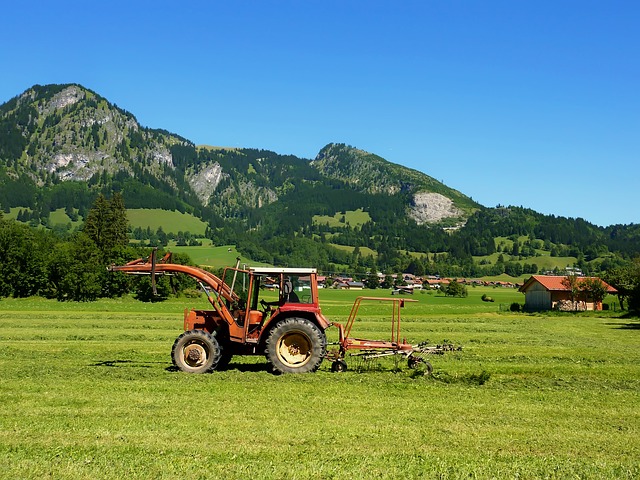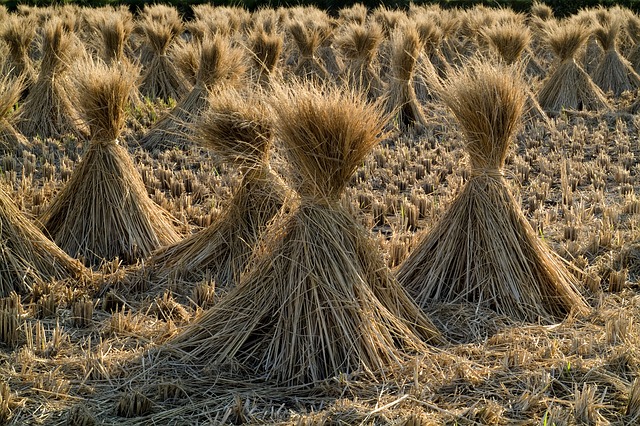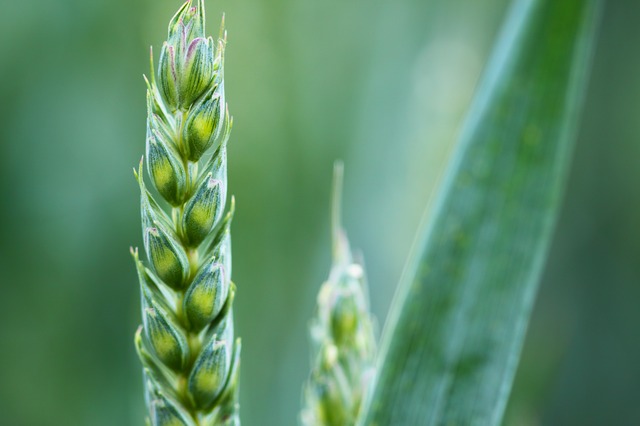
[monetize id=”1″]
Questions and Answers
I am a teenager now, but I am really serious about this. My grandpa was a traditional crop farmer and I come from a farming community, but I have hardly any experience, other than I realize exactly how much money is made and how hard the work is and how expensive things are and how they can go wrong. I want to go to a college for agriculture and I would like to start my own organic farm… Sometime…
I know getting a job on an organic farm would be good for gaining experience and some funds. So how would one go about doing this? And what sort of job would this be, or should I try to get? About how much does starting a sort of small, independent organic crop farm (some grains, vegetables, general things like that) cost initially, just a very general estimate for wherever you know about? I know how to keep doing it once it's started, but the start is what I know nothing about. So any information anyone could give me leading up to starting an organic farm after college, I would greatly appreciate.
I definitely want to do organic. I know that.

The best thing to do is get a job on a farm this summer. The easiest way to do this is to find the farmers markets in your area and go to the markets in May (or earlier if you happen to have some that either do winter markets or open up before May) Http://www.localharvest.org is the best website to find such information. This site also have a great forum and you could post there asking for work. I have noticed that farms are eager to get workers right now.
You should find some organic/sustainable agriculture conferences and go to at least one this winter. You will meet a lot of like minded people, can go to some workshops to learn a bit more and likely be able to find a summer job on a farm.
I don't know if getting a degree in sustainable ag would be as helpful as getting a liberal arts degree and getting a lot of hands on experience working on farms.
I say that because I came into organic farming almost by accident but found my anthropology degree to be quite helpful. I have been farming organically for the past 15 years but did not come from a farming background (my grandfather was an alfalfa rancher from the 1920's until the 1960's). But circumstances allowed my husband and i to start farming produce and poultry on a small level and for the past 10 years we have been able to make our living solely from farming.
When we started we rented and during that time we learned how to farm organically, got the farm certified organic, dropped all certification when the USDA took over, built up a large customer base, started 2 farmers markets, started, folded and started again a CSA and bought a farm of our own 3 years ago. The learning curve is steep though now we have many excellent websites, email lists, regional and state organizations (in Ohio we have OEFFA, the Ohio Ecological Food and Farm Association Http://www.oeffa.org). there are also a lot of blogs out there with great information you can find many of them via Http://boulderbelt.blogspot.com
Good Luck.
Which state do you think is better for a small scale organic farm?
A) Vermont
B) Colorado
WHY?

They both are fine for oganic farming.
To have family close by would be my choice
Them temperature is a factor.
Read article for Vermont and Colorado oganic farming classes…
By Lisa Rathke, The Associated Press
POULTNEY, Vt. — Devin Lyons typically starts his days this summer cooking breakfast with fresh eggs from the farm's chicken coop. Then, depending on the weather, he and a dozen other college students might cut hay in the field using a team of oxen, turn compost or weed vegetable beds.
While other college students are in stuffy classrooms, about a dozen are earning credit tending a Vermont farm. For 13 weeks, 12 credits and about $12,500, the Green Mountain College students plow fields with oxen or horses, milk cows, weed crops and grow and make their own food, part of an intensive course in sustainable agriculture using the least amount of fossil fuels.
BACK TO BASICS: 'Natural patterns' of farming touted in film
START-UPS: Turning farm debris to fuel
"Lots of schools study sustainable agriculture but I don't think any of them put it into practice," said spokesman Kevin Coburn.
There are no tractors on the 22 acres next to the brick campus of the small liberal arts college on the edge of the town — just two teams of oxen, and goats, pigs, two cows, and chickens.
Students sleep in tents on the field's edge, next to a river. They spend about six hours a week in classes in the old farmhouse, learning theory on organic crop and animal management; management of farm systems; development of agricultural technologies with a focus on human and animal power; and the social and cultural importance of regional food. The rest of the time they're out in the field, or doing homework and working on research projects.
TREND: Farm-to-table meals let you dine at the source
"So they're actually seeing the applications firsthand," said Kenneth Mulder, manager of the college's Cerridwen Farm, who runs the summer program.
College farming is growing. According to the Rodale Institute in Pennsylvania, more than 80 schools now have hands-on and classroom-based farm programs. Many of them are organic vegetable farms, but students don't necessarily earn as many credits as Green Mountain College students do, nor do they get to work with teams of oxen. Sterling College, also in Vermont, has a similar program.
"It's traditionally been one of the leaders in environmental studies and it is because they put their studies where their mouth is in really getting students out and doing and practicing the sort of environmentally enlightened work that some talk about in class," said Roland King, a spokesman for the National Association of Independent Colleges and Universities.
For her research project, Cassie Callahan, 18, Conway, N.H., wants to water plants with gray water collected from the farm's solar shower, attached to the greenhouse. But she's not sure yet if the soap — even biodegradable soap — will harm the plants if it's not diluted.
Her real love is working with draft horses. She jumps at the chance every time and even has a new tattoo of a team of horses on her shin. In her hometown, she had a job driving horse-drawn sleighs and wagons in her hometown and now has learned the animals can be used for more than tourism.
She hopes to be a farmer, supporting herself and selling a little on the side.
"You know people have jobs to make money to feed themselves and cloth themselves but I'd much rather have my job be to feed and cloth myself," she said.
Green Mountain College hopes to turn out farmers and has several alumni running farms nearby. Other students are interested in food-related fields — whether it's organizing nonprofits, working on policy or overseas development work.
Lyons, 19, doesn't know if he'll farm but so far he's learned a lot.
Growing up in suburban Jefferson, N.J., he said he didn't know much about where his food came from and was never exposed to organic farms.
"Like I never really got the connection between the chicken on my plate — and it was like a dead chicken that was killed — like I just never really thought about it," he said.
Copyright 2009 The Associated Press. All rights reserved. This material may not be published, broadcast, rewritten or redistributed.
What are some sustainable developments in the desert? (like sand dams and stuff like that)
Thanks 🙂

Sustainable development of oasis; desert communities
and socioeconomic studies;Improving sustainable rural development as a key to fight dust storms: an
example in North China. Http://www.icarda.org/Publications/8th-I… Sustainable development of the Indian desert: the relevance of the farming systems approach Http://www.sciencedirect.com/science?_ob… ————– Sustainable Development
in a Desert Climate Http://phoenix.gov/urbanformproject/dtpl… ——- Mojave Desert Solar Battle Continues
Http://www.goodwinsustainabledevelopment… ————— DDC Helps Western Desert Community Implement Sustainable Development
In the heart of Egypt’s western desert lays a remote oasis called Abu Minqar. With the help of AUC’s Desert Development Center (DDC), Abu Minqar farmers have established a Development Association and started improving their irrigation infrastructure, enabling them to use the desert’s finite water resources much more efficiently. Http://www.aucegypt.edu/news/Pages/NewsD…
[monetize id=”2″]
Sustainable Agriculture Conference 2011 – Durham, NC

